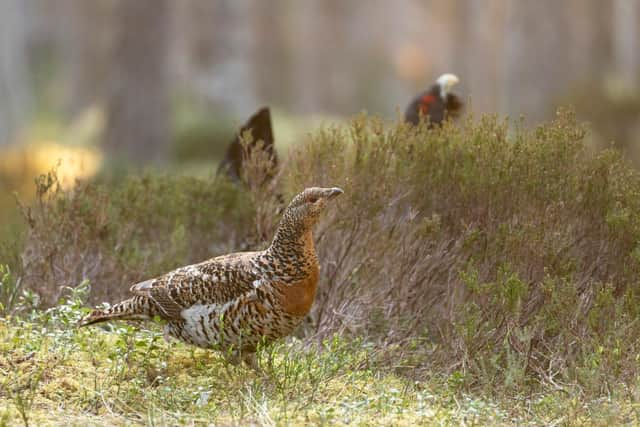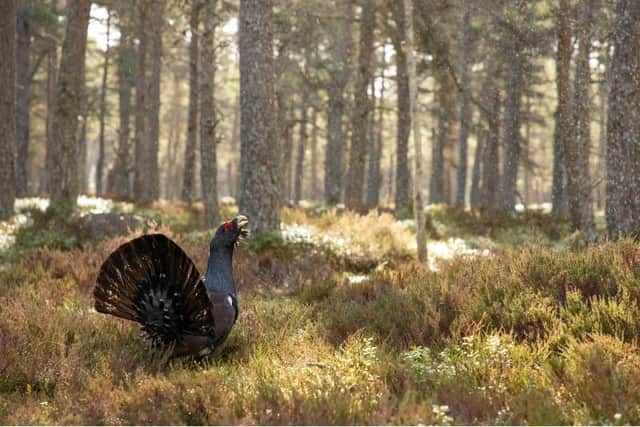Capercaillie: Cairngorms National Park asks visitors to keep their dogs under control and away from the capercaillie as lockdown travel restrictions ease
Park staff are encouraging residents and visitors to keep pets under control and asking walkers to be extra mindful of where they tread.
Capercaillie are a protected species by law, making it an offence to intentionally or recklessly disturb them while they are lekking, nesting or rearing their young.
Advertisement
Hide AdAdvertisement
Hide AdThe park’s pinewoods are home to 80% of the creatures in Scotland


Sensitive to disturbance, capercaillie gather in specific areas of pinewood to mate each spring and if the birds are disturbed they might not breed at all that year.
Carolyn Robertson, Cairngorms Capercaillie project manager, said: "As locals, we've been taking advantage of the amazing trails on our doorstep, and we're looking forward to visitors returning to enjoy the National Park once restrictions ease.
"But this time of year is especially critical for the survival of ground-nesting birds like capercaillie and we all have a part to play in keeping them safe.
"We need to take extra care if we're out in the woods not to disturb this striking bird, especially in spring when they are breeding.


"When capercaillie chicks are really young they can't survive without their mothers and they may not regroup as a family after being scattered.
"But there are steps we can all take to ensure that we don't flush and scare them, which will hopefully help the next generation of birds survive the season."
The news comes as travel restrictions ease allowing for Scots to travel across the country outside their local authorities.
Advertisement
Hide AdAdvertisement
Hide AdThe park predicts a ‘surge’ in visitors as a result of the easing.
Adam Streeter-Smith, CNPA access officer, said: "Going for a walk with the dog keeps us moving and our canine friends happy - but although a dog might be well behaved and friendly, a capercaillie sees them as a threat and a predator.
"In pine woodlands, between April and mid August, please keep your dog on a lead when requested by signage.
"It's extremely important that we follow the Scottish Outdoor Access Code so we know we're always helping to protect the environment and wildlife we love."
A message from the Editor:Thank you for reading this article. We're more reliant on your support than ever as the shift in consumer habits brought about by Coronavirus impacts our advertisers.
If you haven't already, please consider supporting our trusted, fact-checked journalism by taking out a digital subscription.
Comments
Want to join the conversation? Please or to comment on this article.